Savitribai Phule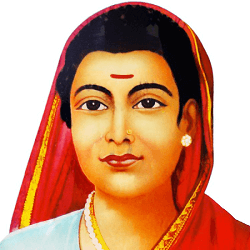
During the nineteenth century, Savitribai Jyotirao Phule, a prominent Indian social reformer, educator, and author, played a crucial role in the education and empowerment of women. With her partner Jyotirao Phule, Savitribai is recognised as one of the few truly accomplished women of her era who founded the primary young women's school in Bhide Wada, Pune. She put in a great deal of effort in her efforts to educate and liberate child widows, fought against child marriage and sati pratha, and supported widow remarriage. She is recognised as a key character in the evolution of social reform in Maharashtra and is seen as a representation of Dalit Mang alongside the ideals of B. R. Ambedkar and Annabhau Sathe. She fought against distance and was successful in eliminating orientation- and position-based separation. Birth and Early Years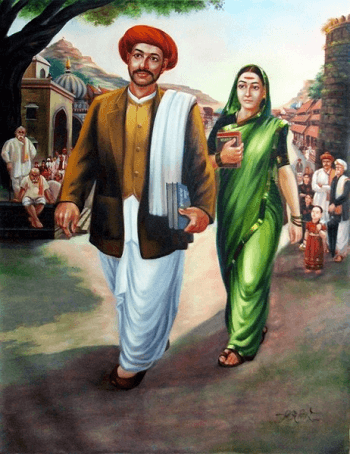
Savitribai was brought into the world on January 3, 1831, as the elder daughter of Khandoji Neveshe Patil and Lakshmi in the farming community of Naigaon (then in the Satara district) in British India. In accordance with the prevalent customs of the time, Savitribai, who was nine years old, married Jyotirao Phule, who was twelve years old, in 1840. Jyotirao continued on his path to being a strategist, essayist, social fanatic, and opponent of established social reformers. He is regarded as one of the key players in Maharashtra's progress of social change. After her marriage, Savitribai began her formal education. Her better half taught her basic reading and writing after observing her enthusiasm for learning and teaching herself. She did third- and fourth-year assessments from a regular school and refocused her energy on teaching. She attended Ms. Farar's Institution in Ahmednagar for preparation. Jyotirao supported Savitribai wholeheartedly throughout all of her charitable endeavours. Her contribution to the empowerment of women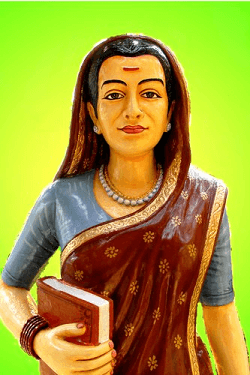
When she was still in her adolescence, Jyotirao and Savitribai established the first natively administered school for young females in Pune (at that time, Poona). The calm-minded pair received refuge from a friend Usman Sheik and his sister Fatima Sheik, who also provided the Phule pair with space in their place to start school, despite the fact that they were divided by both family and neighbourhood by this decision. Savitribai eventually became the school's main teacher. Later, Jyotirao and Savitribai started schools for the untouchable children from the Mang and Mahar stations. There were three active Phule schools in 1852. The British government recognised the Phule family on November 16 of that year for their efforts in the field of education, and Savitribai was chosen as the top teacher. She also started the Mahila Seva Mandal that year with the intention of raising awareness among women about their rights, nobility, and other social issues. She was fruitful in starting a hairdresser's strike in Mumbai and Pune to go against the act of shaving widows' heads. By 1858, all three of the Phules' schools had been closed. There were many reasons for this, including the disappearance of private European gifts following the Indian Rebellion of 1857, Jyotirao's resignation from the school board advisory group due to disagreements over the educational program's evaluation, and the withholding of assistance from the government. Jyotirao and Savitribai, along with Fatima Sheik, were unfazed by the circumstances and took on the burden of teaching others from the mistreated networks as well. Savitribai opened 18 schools over time and taught children from many socioeconomic backgrounds. Savitribai and Fatima Sheik began exhibiting women and people from demoralised stations. Many people, notably the upper class of Pune, who were against the Dalit instruction, did not take this well. Locals compromised Savitribai and Fatima Sheik, who were also bugged and socially humiliated. Savitribai was pelted with cow manure, mud, and stones as she made her way to the school. However, despite these injustices, Savitribai was adamant that she would still accomplish her goal and bring two saris. Saguna Bai eventually joined Savitribai and Fatima Sheik and, like them, became a leader in the training growth. Meanwhile, the Phules also settled a night school in 1855 for agriculturalists and workers so they could work during the day and go to class at night. Savitribai started paying children for attending school in order to monitor the school dropout rate. She continued to be an inspiration for the young students she taught. She encouraged them to try out composition and painting skills. Mukta Salve, a Savitribai student, wrote a paper that later served as the basis for writing about Dalit women's emancipation at that time. She organised parent-educator gatherings at regular intervals to spread awareness among parents of the need for proper education, so they send their children to school on a regular basis. The Balhatya Pratibandhak Griha was founded in 1863 by Jyotirao and Savitribai, who may have been the first to establish a child killing prevention home in quite some time. In order to prevent the killing of widows and slow the rate of child mortality, it was built to allow pregnant Brahmin widows and assist victims to deliver their children in an area with the utmost ease. Jyotirao and Savitribai, who didn't have a child, adopted a child from a Brahmin widow named Kashibai in 1874, conveying important messages of strength to the active members of the general public. Yashavantrao, the adopted youngster, went on to become a specialist. While Jyotirao promoted widow remarriage, Savitribai tirelessly fought against societal injustices like sati pratha and bal vivah, two of the most sensitive social issues that were gradually degrading the actual presence of women. She also made an effort to educate, engage, and promote the remarriage of the young widows in order to bring them up to par. Different Endeavors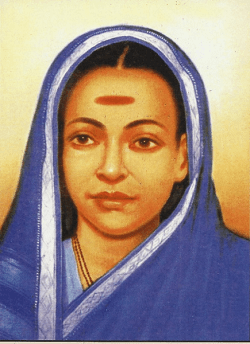
She collaborated with her partner in the previous person's efforts to abolish the standing position and its associated customs, win equal rights for those in lower positions, and transform Hindu daily life. When others were afraid to provide water to the parched untouchables since the shadow of an unapproachable was seen as debased, the couple opened a well in their home for them. She also had ties to the Satyashodhak Samaj, a social reform organisation founded by Jyotirao on September 24, 1873, in Pune. The samaj's goal was to protect women, Shudra, Dalits, and other less fortunate people from abuse and exploitation. Its members comprised Muslims, Non-Brahmans, Brahmans, and government officials. Without a minister or share, the couple organised the least expensive relationships in the samaj. In these partnerships, the two ladies and grooms made commitments that added up to their marriage commitments. Savitribai served as the head of the group's female division, and after her spouse was killed on November 28, 1890, she took over as the samaj's executive. She worked courageously during the starvations beginning in 1876. They circulated free food in various regions as well as sent off 52 free food lodgings in Maharashtra. Savitribai convinced the British government to start alleviation work during the 1897 draft. The educationist and social lobbyist additionally raised her voice against the station and orientation separation. Kavya Books of her sonnets are being gathered by Kavya Phule (1934) and Bavan Kashi Subodh Ratnakar (1982). DeathShe took on child Yashwantrao and served individuals of his region as a specialist. At the point when the overall Third Pandemic of the bubonic plague gravely impacted the region around Nallaspora, Maharastra, in 1897, the valiant Savitribai and Yashwantrao opened a centre at the edges of Pune to treat the patients tainted by the illness. She carried the patients to the facility, where her child treated them while she dealt with them. In the natural process of everything working out, she got the illness while serving the patients and gave up on it on March 10, 1897. Legacy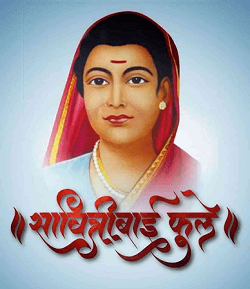
The constant endeavours of Savitribai in checking the well-established wrongs of society and the rich tradition of good changes done by her still motivates us. Her reforming efforts have been recognised over a lengthy period of time. The Pune City Corporation recognised her accomplishments in 1983. India Post delivered a stamp in her distinction on March 10, 1998. In 2015, the University of Pune was renamed Savitribai Phule Pune University in her honour. Google's web crawler created a Google doodle on January 3, 2017, to honour her 186th birthday. Further, the Savitribai Phule grant is granted to ladies' social reformers in Maharashtra.
Next TopicTaapsee Pannu
|
 For Videos Join Our Youtube Channel: Join Now
For Videos Join Our Youtube Channel: Join Now
Feedback
- Send your Feedback to [email protected]
Help Others, Please Share










